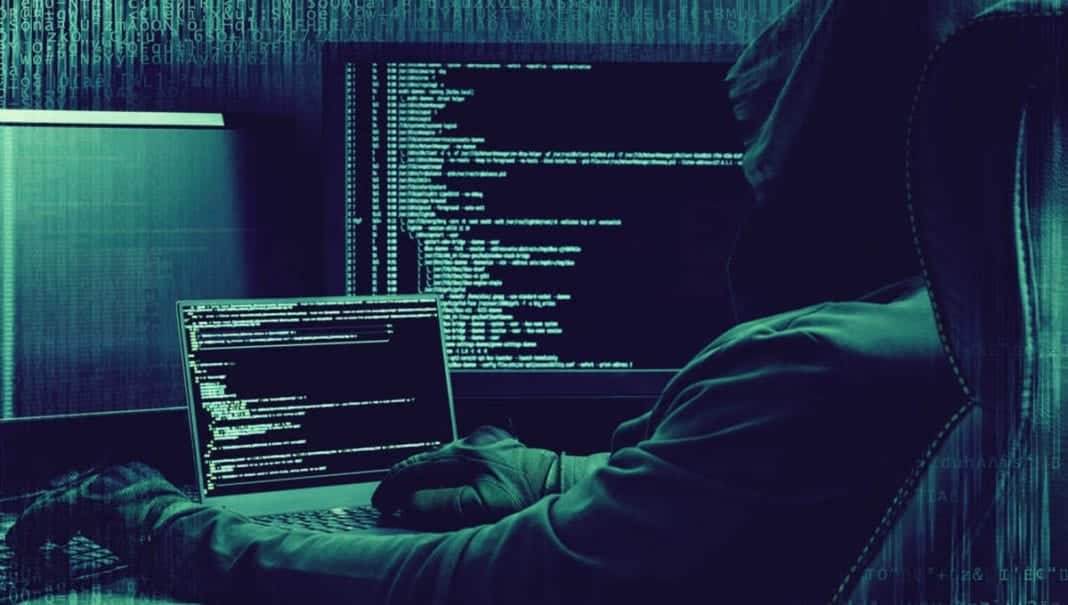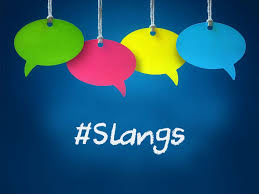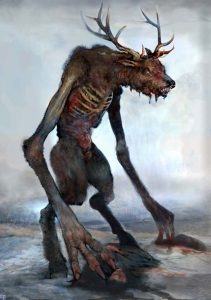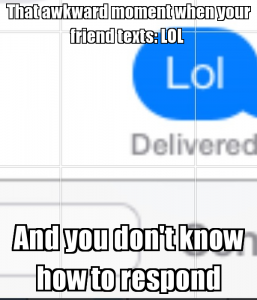Remember for Weds, your homework is to read and annotate the article on “This is America” you chose in class on Monday. Be prepared to explain it to someone who has not read it!
Do one goal at a timePage 2 of 5
Tyler Walker ENG 1101
When you think of hackers, what do you imagine? Maybe it’s a bunch of green 1s and 0s? Maybe it’s Russians interfering with the presidential election. And maybe it’s somebody behind a computer stealing your information. What if I told you this word never meant any of these, but actually evolved into what it became today? What if I told you there was more to this word than the general public is told about?

According to the Oxford English Dictionary, the term “hacker” can be described as “A person with an enthusiastic interest in computer systems, esp. one who is skilled at programming.”. The entire idea of “hacking” all originated from the Massachusetts Institute of Technology in 1961, when students in MIT’s Tech Model Railroad Club “invented programming tools, slang, and an entire surrounding culture that is still recognizably with us today.”. “The Early Hackers.” The Early Hackers, 5 May 2000, 18:57:21, catb.org/~esr/writings/cathedral-bazaar/hacker-history/ar01s02.html.” This influenced the computer science culture and eventually they adopted the term “hacker”. This influence had a wide spread effect and the realization and recognition of hackers began to emerge around 1969 where the ARPANET became a reality. Now you may be asking what the ARPANET is? The ARPANET represented the Advanced Research Projects Agency Network, a small concept at first, sprouting from the desire to share information over great distances without the need for dedicated phone connections between each computer on a network in 1967 became a reality 2 years later with the assistance of 4 Universities. The ARPANET was considerably the spark of the internet and how the computer network that we use today was born. Not only did the ARPANET provide many with access to a high-speed network, but the ARPANET built bridges that connected hackers from within the U.S to one another. Considerably they’re a family that’s distanced from each other and this is their way to communicate with one another. “instead of remaining in isolated small groups each developing their own ephemeral local cultures, they discovered (or re-invented) themselves as a networked tribe” “The Early Hackers.” The Early Hackers, 5 May 2000, 18:57:21, catb.org/~esr/writings/cathedral-bazaar/hacker-history/ar01s02.html.”
As Jose Pagilery stated in the article “The evolution of hacking”, “Hacking became the art of figuring out unique solutions. It takes an insatiable curiosity about how things work; hackers wanted to make technology work better, or differently. They were not inherently good or bad, just clever.”. So how did hackers obtain such a bad reputation and became infamous for their “clever” behavior? With the help of others, new hackers began to adjust computer software and reverse engineer hardware to improve its quality and speed up their machines. In 1971 a new generation of hacker joined the fray named “phreakers”. These were a bunch of “American punks” who took lightly of the nation’s telephone system and used it to their advantage to make international calls for fun. While this activity may seem harmless to many, this was considered wire fraud, resulting in the FBI to get involved with this ordeal, cracking down on many phreakers. This was the decline of hacker’s neutral reputation and the way that we perceive them has changed for the worse. By the mid-2000s, hacking belonged to organized crime, governments and hacktivists. The definition of hacker changed to what it is now, according to the Oxford English Dictionary, “A person who attempts to gain unauthorized access, esp. remotely, to a computer system or network, or (in earliest use) a telephone network. Later also: a person who gains unauthorized access to another’s telephone communications or data (phreakers)”. This all sprung from the curiosity of hackers, if a network or computer that they were interested in was inaccessible, they would become extremely persistent until they obtained the connection they strived for. Hacking became more and more malicious as necessities such as banking, shopping and private information became more accessible providing hackers the opportunities to do wrong. Naturally, when there is an opportunity to exploit the system for person gain, there will be many who would approach that opportunity.

During my years in high school, I was involved immensely with engineering, robotics and computer science. While we did use many terms, when the word “hacker” turned up we always assumed “someone who fixes something”. It was rarely seen in the light as someone who would use the internet to attack you for your information. It was not if we didn’t know what the word meant by any means, but it was so unnatural for us to make this assumption of someone being a hacker. Even when we called each other hackers, it was jokingly as most of us were somewhat good in our field. This made me realize how people are perceived in the world. Hackers were never inherently bad, but as the times progress the only way for them to adapt was to do malicious activity. Not all hackers are bad, some are very misunderstood, but there sure is a lot of dangerous ones out there. So maybe my friends and I are “hackers” that shouldn’t define who we are, but that’s for us to decide.
Sources Cited
- Pagliery, Jose. “Computer Hacking: From Teen Prank to High-Stakes Crime.” CNN, Cable News Network, 5 June 2015, cnn.com/2015/03/11/tech/computer-hacking-history/index.html.
- A Brief History of Hackerdom: The Early Hackers, catb.org/esr/writings/hacker-history/hacker-history-3.html.
- 8, 2002 Spyd3rApril. “The History Of Hacking.” Help Net Security, 8 Apr. 2002, helpnetsecurity.com/2002/04/08/the-history-of-hacking/.
Image source: https://www.techworm.net/2017/12/moneytaker-hacker-group-stole-millions-u-s-russian-banks.html
Cloyde Vandenburg
English 101
They are US: We are Them
ZOMBIE!!!!! RUN !!!!! like most horror films, monsters are always depicted as something we fear, yet humans connect and understand these so called “monsters”, so what can stories about monsters, show us about ourselves and our culture?
Beginning:
Throughout history there have been countless stories about monsters, some being iconic some not so much. In American youth culture instead of being afraid of these so called “Monsters” they are rather embraced and understood. Why? What makes there’s monsters so relatable? Is there a specific Kind of monster that’s relatable to or is it all of them. In the article “My Zombie Myself”Chuck Klosterman states that “they knew they would be able to relate to it” basically what he is saying is that instead of being afraid of their unconscious fear humans most likely relates to monsters than fear them. This Makes sense even though is only answers only half of the question, is there a specific Kind of monster that’s relatable to or is it all of them?. The general monster (Dracula, Frankenstein,Zombies) etc are understandable and I agree with Klosterman because typically these monsters are created some freak accident and all you can finished sorry for them. The million dollar question now is, what about the “Monsters” that aren’t created through a freak accident. Klosterman statement is blind rattling until you realize he is correct, our everyday life is more like a monster flick than a get away in paradise.
Wake up:
This is a big Wake up call round because what this is telling us is that we don’t just understand these monsters because their just monsters, we understand and relate to them because WE ARE THEM! We are the monsters. How are we the monsters ? Mostly monsters are created though freak accidents, but that’s the best part of the whole phenomena. This kind of monster isn’t created in such a way but through bad relationships, social media, video games, work, all of these things turn us into the things we fear the most, mindless creatures much like Zombies reading and deleting emails, going to work or school, all makes us zombie like creature, how because like a zombie, whose only desire is to consume flesh, out desire lies with these activities. In other words activities that become a habit can be considered a monstrosity. In his article Klosterman mentions another author who states “opening Safari is an actively distractor decision. I am asking that consciousness be taken away from me”. What the author is trying to convey is that when she opens safari she becomes so distracted, it’s almost like a mindless zombie, which I completely agree with because it relates to social media and our smartphones.
Wow:
Everyday on your daily commute, all you see is people on their phones and it’s not only pre-teens, or teenagers it’s also the adults. Everyone hear are constantly faced downward almost never looking up, to notice the world around them. Speaking of, I’m also guilty of this act most of the time while on my way my school all I do is scroll through social media or listen to music or both. I can remember a few weeks ago I forgot to charge my headphones and couldn’t listen to music on the train which forced me to look up, to notice the building and my surroundings. The thing is that even as we’re looking down sending a text or email, we are still capable of navigating our surrounding while still glued to our phones. We need to look more often. Video games is another example of how technology males is mindless, kids and teenagers play video games so much it becomes a part of their daily conversation but this is not the part that makes them mindless, that part is staying up late playing, always saying “five more minutes” but those five minutes never seem to end end until It is 4 or 5 am in the morning. How do they manage to stay up so late ? Well the answer is simple and also something I used to do, when parents would check on us we would turn off the tv really fast and pretend to be asleep, wait five minutes then back to gaming. This scam had worked countless times in my experience. The point is that videos become so addicting, the person playing it becomes so mindless that they don’t get up for a long time unless except to get something to eat or go to the bathroom. Put the video games down a bit and interact with others, you may not get that change again.
Repetition:
“ Zombie killing is philosophically similar to readings nd deleting 400 work emails or filling out paperwork which only generates more paperwork”. Stated by Klosterman in his article he relates lie everyday life as the zombie apocalypse as the more we get done, more of it comes back, same as the more zombies you kill the more they come back. “As long as we keep deleting whatever’s in front of us, we survive” another quote from Klosterman’s article, relating to the fictional world of zombies and monsters, as long as we keep killing them we may survive, this can also relate to the real world as long as we complete our everyday tasks we can go on living. I agree completely Klosterman on this reason being is that in order for us to survive there are several obstacles that need to be overcome, and there obstacles take the form as our everyday tasks. What can these things tell us about ourselves ? One can almost say we are slaves to our everyday life. Each day we wake up and for the things over and over alamot never changing anything, mind blowing isn’t it.
The End:
The thing about monster stories is that if we don’t pay close attention to them we may fail to see the meaning behind them. Some teach us important life lessons, whole some we relate to. Some monsters aren’t just created but already exist, within is with the real world as our domain only to be a slave to ourselves.
Hend Elwahwah
English 1101
Dr. Hall
BuzzFeed
Humanity:Monsters
No matter what you believe, were being tested right now. In Islam, we have a monster who tests us, named the Dajjal. The Dajjal will possess power over this world. Thus, Muslims must be careful not to have the love of the world in their hearts so they won’t leave their religion and follow him. He will be able to heal the sick by wiping his hand on them, like Jesus did, but with this deceit the Dajjal will lead people down the path to hell. The Dajjal is the false Messiah, or Anti-Christ (Massih ad-Dajjal). He will pretend to be the Messiah, and deceive people by showing them amazing powers. The Dajjal will have powers of the devil. He will terrorize the Muslims into following him, converting them into unbelief. He will conceal the truth and bring forth falsehood. The prophet said that the Dajjal will have the power to show the image of one’s dead ancestors on his hand, like a television screen. The relative will say, “Oh my son! This man is correct. I am in Paradise because I was good and I believed in him.” In reality that relative is in hell. If the relative says, “Believe in this man, I am in hell because I didn’t believe,” one must say to the Dajjal, “No, he is in Paradise. This is false.” (Chapter eight, page 1) That is your test right there, to see if all along in this life you were being faithful of your religion. The simple definition of who the Dajjal is verifies that us humans are being tested. Regardless of your religion-Islam, Christianity, Judaism -or lack of religion, I believe one is being tested in every step of one’s life, whether it be through hardships or happiness. Regarding to Islam, evidence of being tested in this life is for Allah to test his creations, whether it is bad or good, we are on this earth to be tested for the hereafter for our Lord to choose whether we go to Heaven or Hell. In order for us to achieve our goal in life as a Muslim, we pray 5 times a day. That on its own is a test, you can mess up so much in life but if you did one of your duty as a Muslim and prayed 5 times a day, that can take you to Heaven. Prayer is a norm to Muslims. Muslims have a holy month named, “Ramadan.” As a Muslim, your duty is to fast the whole month of Ramadan. That is also a test. God asks from us to worship him, many people may say that following your Lords commands would make you “religious,” but that is not true. That is just simply you being a Muslim. Muslims have 5 pillars they have to follow, which are: Deceleration of faith, Prayer, Charity, Fasting, and lastly your pilgrimage to Mecca. It is all a test, you know your duties, regardless of your religion, YOU are being tested! Muslims 5 pillars of Islam is our test in this world, for the hereafter. The Dajjal coming down to all of humanity trying to turn Muslims into disbelief is a test for the hereafter. In Christianity, Christians also believe they are being tested, they also believe they have to follow duties that their Lord commanded them to do, to be a good Christian, and also for their Lord to determine whether they go to Heaven or Hell. Religions are so similar, yet so different. Christians believe they are on this world also to be tested. The Bible states, “We must first, however, begin with an important clarification between heaven and the new earth or new creation. Scripture teaches that when we die we go to be with Christ, immediately joining him in heaven. For example, Jesus tells the thief crucified along with him, “Today you will be with me in Paradise” (Luke 23:43).” (Heaven and Hell, Page 1) This saying provides evidence to the fact that Christians also believe in Heaven, the reason to why us humans are being tested in this life is to lead to the determination whether you go to Heaven or Hell. Many people may start to question themselves after reading this, “Am I doing this right?” “Am I following and doing my duties as a Muslim/Christian/etc..” If you came this far in this article, this is God telling you to wake up, take this as an eye opener. YOU are on this earth, alive, till this very second to worship your Lord and do your duties. There is bad and good behind everything in life, whether it be the hard tests or obstacles we go throughout our lifetime, we are being tested. God is trying to do and show us that this world is not forever, there is a hereafter. God sends down monsters to humanity like the Dajjal, to test you and give you chances. Trust me, I have personally studied religion basically my whole life, God has a plan for you. Be faithful and confident in your religion, beware of your surroundings! In other words, STAY WOKE. If you believe you are in this world for a purpose, to be tested for the hereafter, stay faithful, God has a plan for you. Wake up and realize, everything around you is going to be gone one day, you yourself are going to be gone one day. The only thing left with you and your soul will be your faith in your religion and good deeds. We are not made for this world, we were made to survive this world.
Youtube Video:
Gif:
https://goo.gl/images/dKVgTa
Bibliography:
Carton Nicholson
Professor
English 1101
11/18/2018
What are you really trying to say
There are a lot of things flying out of mouths each and every day. Do you ever take your time and think about what your really saying; even if it’s just for a second? One of my old friends from middle school attempted to count all the times he said f*ck in one day. He lost count after about 20. At the time we were just ten and eleven years old. It’s hard to imagine why on earth a ten year old would say f*ck almost twenty times a day. What could they possibly be stressed about at this age? The truth is we all say things without necessarily thinking about it. There is a time and place for the language we us. The language we use will impact the message we are trying to send and the community of people we are surrounded by.
So where do some informal words come from? What do those informal words mean?. Infromal words are just another way of saying Slang. Slang mainly functions as a way of being comfortable. If your not comfortable, then why are you trying to use slang? “ College slang, or any slang really, comes about just like formal language. There are processes that are shared by both, such as blends or acronyms, but it all comes down to the same basic principle: recycling words and giving them whole new meanings.” So what are you really trying to say?
There are many ways to say some words. You can say hello in several different languages. There are 15 ways to say “Hello” in English Alone. Slang has it’s own ways that people use to say hello. “Yo” is a very a common way of saying it. However, another way of saying hello/greeting would be the word “yer”. “Yer” may not be a universally popular like the word “yo”. However, it primarily is limited to the Newyork and New Jersey area. It is mostly in the Queens and Brooklyn area.
One day you could be visiting someone in the Newyork and Queens and hear “Yerrrrrrr, what’s good bro”? In your head you will immediately think what was just said. Was it even proper English? That’s a totally normal response by the way. Especially when you have no idea what the other person might have been attempting to say. “ Yerrrrr” isn’t in your typical dictionary. Like many other slang words, you could probably find them in your urban dictionary through your search engine. If your familiar with New York than you probably heard “yerrrrrrr” before and perhaps you may even know what it means.
So what does “yerrrrrr” mean? First of all, there are several meanings for it. “Yerr” means one thing while “Yerrrrrrr” means another. It can be very confusing at times. Yer is like other words in this sense. The meaning of the word depends on the tone and duration it is held for. You would think that slang words wouldn’t have such rigid guidelines to it. However, slang words are another language essentially and in order to communicate properly, there has to be some guidance available. If you didn’t have any guidelines, you could possibly have people saying words and nobody comprehending anything at all. That is the truth about slang and other forms of languages too.
Newyork has so much slang to offer. Foreigners are most likely caught off guard when they hear all the different slang words we have for things. Words like “ Deadass” and “Kicks” are just the top of the iceberg when it comes to what newyork slang has to offer. The good part about it too is that it is also a learning process. I mean you learn as you go along. You could attempt to learn all the slang words in a day. However, you’ll most likely end up using them incorrectly and making a fool of yourself. You pick them up as they become useful to you. For example, I was about 10 when I came across the word “whip”. Now whip can mean to strike something. However, when using it in terms of New York Slang, it means a nice/expensive car. Therefore I didn’t really start using it till me and my friends started driving. They would text in the group chat “who got the whip”. Essentially it is just another way of saying who got the car tonight.
Those words are limited to a specific community. Some words are specific to a group or community of people. This is because the words are primarily understood by the people within those communities. There is a small chance someone from Africa may understand Newyork Slang. The same goes for African Slang. It may not be easy for every word to be recognized outside of the community. The English language doesn’t recognize every word either. Some words are just limited to the community that they originated from. That is the purpose of some community specific words. There are some words that should be universal. Therefore, I feel as if we have come to point where we’re not focused on being universal all the time. We are focused on making ourselves comfortable in our own separate communities.

Slang has evolved so much throughout time. We all our own individual ways of saying things and that’s what makes us unique. The words we may be comfortable using today, could be out
dated in a matter of the span of a few years. Some things that were cool in 2006 are no longer cool in today society. Our society is constantly changing each day to incorporate and eliminate so many different things. We have the option to either adapt with the time ms or leave things alone. Some of us may try to hold on to the past as long as we are able too. There is a possibility I may be the only 90 year old screaming “yer” and “deadass” in the future. I am perfectly okay with that future. 
Humans are selfish beings. They want to do things for there own pleasure. We tend to be free-spirited, some more than others which can cause trouble and obstacles for oneself or to the people around us. Monster stories reflect ourselves and the cultures that created them and most importantly can teach us morals.
Nowadays, when you hear the word “monster” you might not think of a scary creature because of how movies portray them, or maybe you might have forgotten the terrifying monsters that exist in your culture as you grow up. Well, the Algonquian monster will remind you how real these monsters may seem. The Wendigo is a monster that draws chills down some peoples spine by just hearing someone say the name. It is a monster most Minnesotans fear. The Wendigo or Windigo is a monster or spirit believed in a variety of indigenous tribes in North America who are Algonquian speaking. The Wendigo is a man-eating monster who is always looking for its next victim, they are known for their speed. It is believed that someone overpowered by greed can become a Wendigo. As well as someone who is a cannibal is considered a Wendigo. The monster showed the beliefs the culture of the Algonquian people had. It taught the importance of not being cannibals when in starvation, selflessness and a community.
Monsters seem to be a part of every culture. It gives us something we can all come together with and relate too. Klosterman writes about this for American culture. Klosterman states “When we think critically about monsters, we tend to classify them as personifications of what we fear…It’s easy to project a symbolic relationship between zombies and rabies (or zombies and the pitfalls of consumerism)…(Klosterman 2).’ The fear of zombies in American Culture helps us be aware of how much we are consuming things like media.
In my own culture, which is Ecuadorian culture. The story of the “Mariangula” is a common monster/spirit.The monster is a ghost who takes disobedient children. As a child, I was afraid the Mariangula would come and disturb my sleep to take me for not listening to what my mother told me to do. This monster teaches those who grew up in Ecuadorian households the importance of obeying our parents.
Cultures created monsters to teach morals. However, don’t let the cute monsters media now portrays forget how real they can be.
Bibliography
“Windigo.” The Canadian Encyclopedia, 9 Sept. 2012, www.thecanadianencyclopedia.ca/en/article/windigo.
Maccauley, Elizabeth. “The Mythology and Misrepresentation of the Windigo.” BackStory, 23 Nov. 2016, www.backstoryradio.org/blog/the-mythology-and-misrepresentation-of-the-windigo/.
Klosterman, Chuck. “My Zombie, Myself: Why Modern Life Feels Rather Undead.” The New York Times, The New York Times, 3 Dec. 2010, www.nytimes.com/2010/12/05/arts/television/05zombies.html.

Stop Using “Lol”
“Yo you tryna get something to eat after college tomorrow Lol?” was the text I got from my friend this morning. Don’t ask me why he put the “Lol” after his sentence. Like there is nothing remotely funny about what he said. Who laughs out loud after asking someone if they wanna go eat? It might sound absurd but many people write Lol after a sentence that isn’t funny in any way. When we get so used to a word and use it repeatedly, we don’t even start to use it for its actual meaning but rather we use it for no reason at all.
As we all know, “Lol” is an acronym for “laugh out loud”. According to the article “LOL, WTF? The Origin Stories Of Your Favorite Internet Acronyms”, published by The Huffington Post, “The online use of LOL might date back as far as the early ‘80s in Calgary, Canada, when then-student Wayne Pearson coined the term with friends on Viewline, a bulletin board system that was a sort of rudimentary chatroom. Or so he claims”(Rebecca Hiscott, 2). So basically a student was trying to be funny in an online chatroom and ended up creating the famous acronym we all know today. Back then, people definitely laughed out loud after using Lol because it was a newly introduced word with only one meaning behind it. But nowadays, about 38 years later, it’s a different story. Stuart Heritage, an author for “The Guardian” states, “A world without Lol is a world without laughter, or at least a world without people claiming to laugh when they’re really just sitting there silently typing things onto Facebook with a Jaffa Cake hanging out of their mouth”(Stuart Heritage, 1). What Stuart is saying here is that when someone says Lol, you would imagine them to be sitting on facebook or any other social media silently without a care in the world for what you said.
Well that kinda pisses me off. Imagine sending one of your friends a joke that you put a lot of thought into and they respond with a simple “Lol”. How would that make you feel? I for sure would want a better reaction. Well I can’t be too mad because honestly, I do the same thing. In my case, If someone sends me something that they think is funny, but I don’t, I’ll respond with a Lol. This leads to another thought: saying Lol nowadays is implying that you aren’t showing enough interest to what is being asked or told to you, which is kinda ironic if you ask me. Yeah I may be overthinking it but I don’t care because I feel smart at the moment. Anyways, I feel like the increased use of other acronyms such as “Lmao” or “Lmfao” is the main cause for the change in the meaning of Lol. We all know that Lmao and Lmfao mean: “laughing my ass off” but one has a fuck in it, which in a way shows more reaction. So let’s get back to the example I provided earlier. You text your friend a joke that you put quite a bit of thought into and he or she responds with an Lmao or Lmfao. I would be much more satisfied with that response than a simple “Lol” because it isn’t that basic.
Is Lol actually used for what it stands for today? That’s an interesting question because it has been up for discussion for a long time now. Back in 2006, David Crystal, author of “Language and the Internet”, asked his readers “How many people are actually ‘laughing out loud’ when they send Lol?”(David Crystal, 26). Not many, I would imagine. Lol is basically used nowadays to show the fact that you have read a message and acknowledged it. You can also use it to sort of balance out a slightly offensive statement that you made and turn it into a joke. For example, you text your friend, “Does your fatass want to get something to eat Lol?” The Lol there takes emphasis off the “fatass” and lets the person know that you’re just joking. Now read that text without the Lol. It seems a lot more offensive because it doesn’t have that playful and light tone that lol provides. It’s crazy because Lol can even be used to quickly end a text conversation. Think about it, what can you possibly respond to Lol with? It basically gives off the impression that the person is boring and isn’t interested in talking with me. Personally I made it a rule for myself to cut off any communication with a person that sends me an Lol without any context. Yes I take it that serious.
So why do I want you to stop using “Lol”? Well, mainly because it causes confusion and it’s way too overused. Funny enough, this is what the Urban Dictionary says about Lol: “Now, it is overused to the point where nobody laughs out loud when they say it. In fact, they probably don’t even give a shit about what you just wrote. More accurately, the acronym “Lol” should be redefined as “Lack of laughter.” (“Lol”). I cannot agree with this statement enough. The word has been so overused to a point that it’s definition has been altered into many other meanings thus causing confusion. Everyone has their own meaning for the word today and it’s hard to decipher what the other person is trying to say when they use it. Don’t get me wrong, there might be people that still use Lol for it’s actual meaning but that would be very obsolete and uncommon.
At the end of the day, we can express ourselves however we want. But life would be much better if we took “Lol” out of the equation. I mean there are so many other acronyms (with more emotion to them) around to use. For example, Smh(Shaking my head), Lmao(Laughing my ass off), ILY(I love you), Wtf(What the fuck) and Omg(Oh my god). For God’s sake you can even use emojis. Nowadays there’s something called a laughing emoji that clearly depicts laughter unlike a very special acronym we know today. At least you can tell that there’s some type of reaction and not just a mindless “Lol” when you use emojis.
Bibliography:
– Heritage, Stuart. “25 Years of LOL – the Good and Bad Bits.” The Guardian, Guardian News and Media, 28 May 2014, www.theguardian.com/technology/2014/may/28/25-years-lol-good-bad-bits.
– Hiscott, Rebecca. “LOL, WTF? The Origin Stories Of Your Favorite Internet Acronyms.” The Huffington Post, TheHuffingtonPost.com, 7 Dec. 2017, www.huffingtonpost.com/2014/07/17/internet-acronyms_n_5585425.html.
– “Lol.” Urban Dictionary, www.urbandictionary.com/define.php?term=lol.
– Pittsburgh, Lauren Collister University of. “The Surprisingly Long, Unfunny History of ‘LOL’.” The Washington Post, WP Company, 28 May 2015, www.washingtonpost.com/news/the-intersect/wp/2015/05/28/the-surprisingly-long-and-unfunny-history-of-lol/?utm_term=.09bdfc1ba0e0.
– Crystal, David. Language and the Internet. 2nd ed., Cambridge University Press, 2006.
Kelvin Michaca
Dr. Hall
English 1101
November 18 2018
Monsters Live, Not Only Among Us but Within Us
Imagine living in a world where there’s Monsters. Well let me tell you this, we already live in a world where there are Monsters. However it’s not only the Monsters you know like Dracula, Barefoot, and Zombies, it’s us instead. Monsters live, not only among us but within us! We sometimes have irrational actions. If you think about it Monsters are figures who are frightening and abnormal. Monsters are also something we fear, so we can consider diseases and criminals as monsters or even yourself.
Our fear is what considers what is a monster. In the article “My Zombie, Myself,” Chuck Klosterman states, “When we think critically about monsters, we tend to classify them as personifications out of what we fear”. Klosterman is saying that, when we think about monster we are always considering them as evil, big ugly creatures but that’s due to your fear overcoming us and describing them in a negative way. For example something as a dog can be considered as a monster. Most Pit bulls are considered as monster due to social media showing the bad side of them which puts fear into people.
Almost everyone describes criminals as Monsters. They are known as monsters due to their irrational actions. In movies you can hear people call a criminal that has harmed their family or robbed them, a monster. Criminals are people who are trying to get money in a easy way which illegal. They try to rob a store or person at first but once things go south it sometimes ends up bloody. Our emotions and mind tell us to consider them as monster. With the definition of a monster a criminal fully suits it. They are frightening people who are abnormal.
How do you think zombies become zombies? The become a zombie by a virus. According to a college student “Humans turn into a zombie from a Solanum Virus”. This shows that he was a human once till he got infected by a virus and is now treated differently. We live in a world where we can get infected by a virus and catch a disease. The fear within us causes us to portray whatever or whoever carries the disease or virus a monster. We call zombies a monster due to them having a virus we don’t want to be infected by. I mean I wouldn’t want to be infected by one. A common disease we have today that is contagious is the flu. I remember as a kid the flu was taken serious by my classmates. Some kid wouldn’t sit next to his friend because he had the flu. He stared at him as if he was a monster. The kid would tell him to go away because he didn’t want to be infected as well. So we consider people with diseases as monsters because of our fear being a infected.
Going back to when I stated the kid was calling his friend a monster because he had flu, this only shows one point of view. Now if we look at the other kid point of view who was being called a monster, I’m sure he thought the same about kid that was avoiding him. He was afraid the way the other kid was acting towards him because of the flu.So the whole point of that was that we can’t only look through one point of view because we all have a monster inside us but we are to blind to see it. So it’s better to look through two points of view. If we think about animals think of us as Monsters. We are slaughtering and eating them. They should definitely be afraid of us and have the mentality to look at us as monsters. That is what we think is a monster is anyway, right?

As we can see in this picture the apes consider us humans as monsters in the movie and view them as monster. So they are going to war.
Bibliography:
Harris Michelle. “Zombie Facts”
http://iml.jou.ufl.edu/projects/fall09/harris_m/anatomy.html
Klosterman, Chuck. “My Zombie, Myself: Why Modern Life Feels Rather Undead.”
The New York Times, 3 Dec. 2010,








